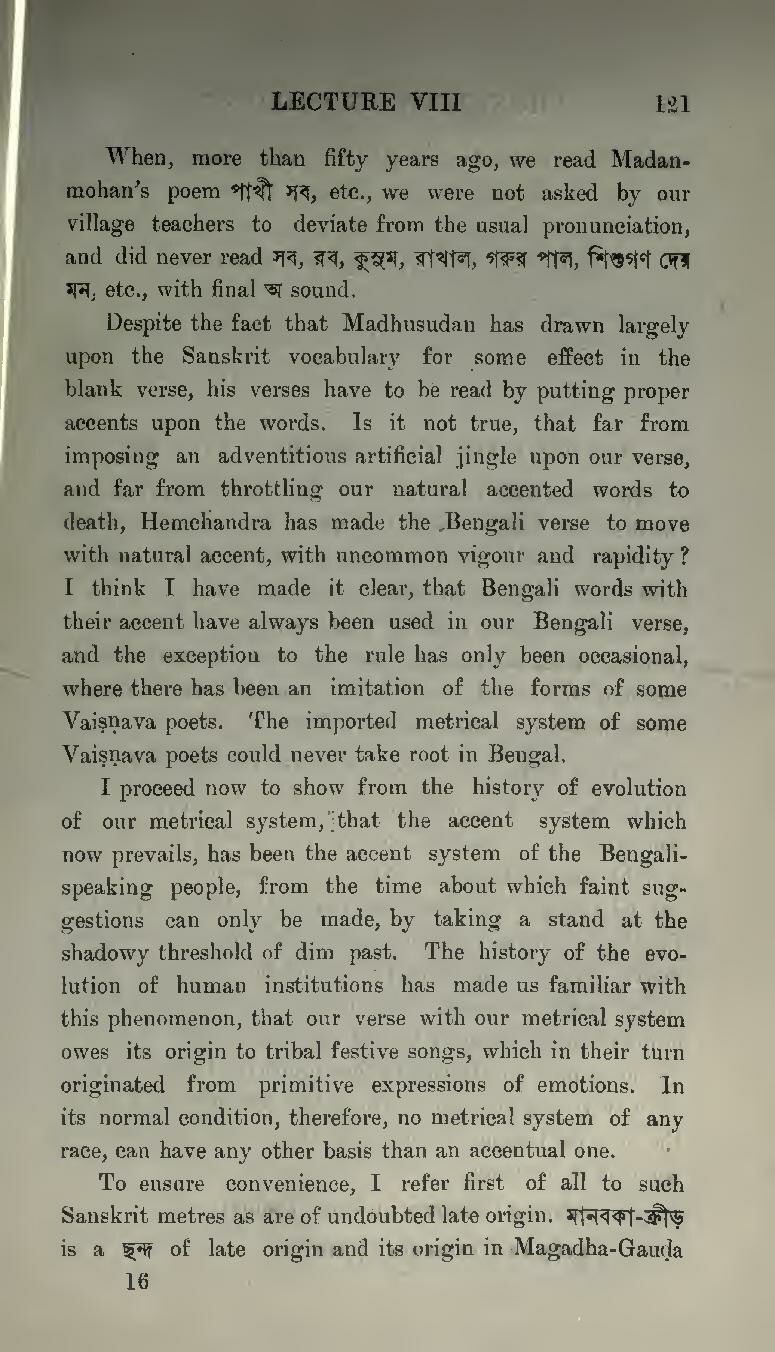When, more than fifty years ago, we read Madanmohan's poem পাখী সব, etc., we were not asked by our village teachers to deviate from the usual pronunciation, and did never read সব, রব, কুসুম, রাখাল, গরুর পাল, শিশুগণ দেয় মন, etc., with final অ sound.
Despite the fact that Madhusudan has drawn largely upon the Sanskrit vocabulary for some effect in the blank verse, his verses have to be read by putting proper accents upon the words. Is it not true, that far from imposing an adventitious artificial jingle upon our verse, and far from throttling our natural accented words to death, Hemchandra has made the Bengali verse to move with natural accent, with uncommon vigour and rapidity? I think I have made it clear, that Bengali words with their accent have always been used in our Bengali verse, and the exception to the rule has only been occasional, where there has been an imitation of the forms of some Vaiṣṇava poets. The imported metrical system of some Vaiṣṇava poets could never take root in Bengal.
I proceed now to show from the history of evolution of our metrical system, that the accent system which now prevails, has been the accent system of the Bengali-speaking people, from the time about which faint suggestions can only be made, by taking a stand at the shadowy threshold of dim past. The history of the evolution of human institutions has made us familiar with this phenomenon, that our verse with our metrical system owes its origin to tribal festive songs, which in their turn originated from primitive expressions of emotions. In its normal condition, therefore, no metrical system of any race, can have any other basis than an accentual one.
To ensure convenience, I refer first of all to such Sanskrit metres as are of undoubted late origin. মানবকা-ক্রীড় is a ছন্দ of late origin and its origin in Magadha-Gauḍa
